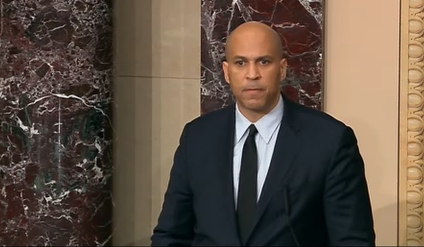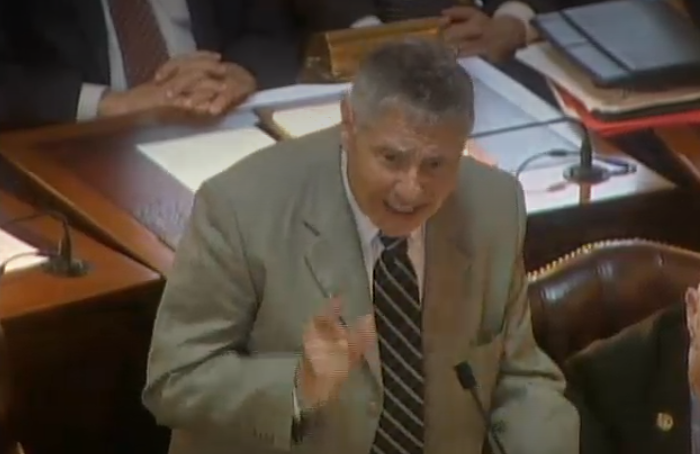
Today, U.S. Senator Cory Booker (D-NJ) introduced legislation aimed at promoting ethical conduct and accountability for ethics violations within the U.S. Supreme Court. U.S. Representative Daniel Goldman (D-NY-10) introduced companion legislation in the House earlier this year.
Numerous allegations of ethical improprieties and undisclosed conflicts of interests and gifts, along with refusals to recuse by Supreme Court justices have eroded the public’s trust in the Court and increased demand for more transparency and accountability in the nation’s highest court.
The Supreme Court Ethics and Investigations Act is a critical first step towards improving ethical standards among the justices and holding justices accountable when they commit ethics violations. Specifically, the bill would establish two new offices within the Supreme Court:
1. An Office of Ethics Counsel that would provide regular ethics training and advise justices on ethics issues, including disclosing gifts and deciding when to recuse from cases.
2. An Office of Investigative Counsel that would investigate potential instances of ethical impropriety by justices and report the findings to Congress.
“There is no reason that the Justices who sit on the highest court in the country should be held to ethical standards that are lower than those of any employee in our federal government,” said Senator Booker. “There’s a crisis of confidence in the Supreme Court. Public trust in the institution is at its lowest point in decades as a result of alleged ethical lapses and conflicts of interest. By creating a mechanism to investigate and hold justices accountable for ethics violations and establishing an Ethics Counsel to provide consistent advice on issues like recusal, gifts, and disclosures, this bill is a critical step towards restoring the credibility of the Court in the eyes of the public.”
“Our nation’s highest court continues to face an unprecedented crisis of legitimacy, in part because there is no enforceable code of ethics nor accountability as required of all other federal judges,” Congressman Dan Goldman said. “I am thrilled that Senator Booker is leading the charge in the Senate to pass my ‘Supreme Court Ethics and Investigations Act.’ This legislation is a sorely needed step to hold Supreme Court Justices accountable and restore Americans’ faith in the Court.”
“Americans should be able to have faith in the integrity of the highest court in the land, but the justices rely on each other for ethical guidance, and have no one checking their work,” said Senator Hirono. “This legislation will help to address these issues by establishing offices to provide professional advice to justices on ethical matters and to investigate complaints made against them or their spouses. The American people should be able to trust that justices arrive at decisions fairly and objectively, and the Supreme Court Ethics and Investigations Act will help to hold the highest court in the land to the highest level of ethical accountability.”
This legislation is endorsed by the following organizations: Fix the Court, Citizens for Responsibility and Ethics in Washington (CREW), Accountable.US, End Citizens United (ECU), Project on Government Oversight (POGO), P Street, Court Accountability, and Demand Justice.
The Supreme Court Ethics and Investigations Act is cosponsored by U.S. Senators Richard Blumenthal (D-CT), Laphonza Butler (D-CA), Mazie Hirono (D-HI), Alex Padilla (D-CA), and Peter Welch (D-VT).
(Visited 16 times, 16 visits today)
Senator Cory Booker has recently introduced a new piece of legislation aimed at enhancing ethics oversight for the Supreme Court. The bill, titled the Supreme Court Ethics Act, comes in response to growing concerns about potential conflicts of interest and ethical lapses within the highest court in the land.
The Supreme Court Ethics Act seeks to establish a code of conduct for Supreme Court justices, similar to the code that governs the behavior of federal judges. This code would require justices to recuse themselves from cases in which they have a financial interest or personal relationship that could bias their decision-making.
In addition to the code of conduct, the bill would also create a new oversight body, the Supreme Court Ethics Oversight Board, to investigate complaints of ethical misconduct and enforce the code of conduct. This board would be composed of legal experts and retired judges, ensuring that it has the necessary expertise to carry out its duties effectively.
Senator Booker has emphasized the importance of ensuring that the Supreme Court maintains the trust and confidence of the American people. “The Supreme Court is supposed to be above politics and partisanship,” he said in a statement. “But recent events have raised serious questions about the ethical standards of some justices. It’s time to hold them accountable and ensure that they are held to the highest ethical standards.”
The Supreme Court Ethics Act has already garnered support from a number of advocacy groups and legal experts, who see it as a necessary step towards ensuring the integrity of the judicial branch. However, it is likely to face opposition from some conservatives who may view it as an attempt to politicize the court.
Overall, Senator Booker’s proposal represents an important effort to address concerns about ethics oversight within the Supreme Court. As the bill makes its way through Congress, it will be interesting to see how it is received and whether it ultimately leads to meaningful changes in how the highest court in the land operates.



